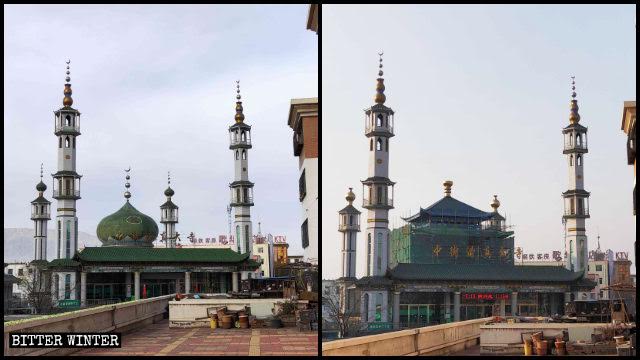According to a recent Xinhua report on The Urumqi Conference, Peking University professor Xue Qingguo believes that the Muslim peoples’ Divine revelation and manual for life, the Holy Qur’an, is a “classic book” that should be altered to keep up with a society that is always improving and changing with the time.
Altering the Holy Qur’an to fit the criteria of communist political laws would eradicate a 1980’s Arabic-to-Uyghur translation of the Holy Qur’an, an instrumental development cherished by Uyghur Muslims, and completed by the late religious scholar, Muhammad Salih, who passed away in police custody in 2018 at the age of 82. His life and works are part of the presence of Islam that Xinjiang China aims to alter by implementing a national plan to “sinicize” the religion.
Radio Free Asia, a media wing of the U.S State Department, reported recently: “….A group of Chinese government officials and academics met in Urumqi to discuss how Xinjiang was implementing a national plan to ‘sinicize’ Islam,” saying it is in need of more “engineering” to meld with Confucianism. Radio Free Asia also mentioned that China’s plans include releasing a “new translated and annotated Chinese Qur’an,” oriented towards the “spirit of the times.”
The China “Islamic” Association
In a document formulated by the China Islamic Association, also known as the Islamic Association of China, the Chinese Communist Party’s supervisory body for Islam, via WeChat (since deleted), the plan for sinicizing islam is further outlined:
–
The China Islamic Association stated “better adherence to and continuous advancement of the sinicization of Islam … is conducive to resolving the salient problems that we currently have in the field of Islam.”
This is to be done, according to the Association, by “maintaining the basic beliefs, core doctrines, and ritual systems, correctly explain[ing] the Quran and Hadith, publish[ing] the annotated version of Quran and “Selections from the Hadith” the goal being to form “a system of Islamic thought which conforms to the actual conditions of our country and integrates into the meaning of Chinese culture in the new era.”
Countering this, Article 36 of the Chinese constitution states: “Citizens of the People’s Republic of China shall enjoy freedom of religious belief. No state organ, social organization or individual shall coerce citizens to believe in or not to believe in any religion, nor shall they discriminate against citizens who believe in or do not believe in any religion.”
Can dictating permission to practice certain parts of religion and vilifying others and forbidding their practice be considered religious freedom? In the words of China’s constitution, sinicizing Islam is in fact breaking its own laws.

The Face of Sinicization and ‘Countering Extremism’ in China
John Powers, a journalist with the University of Nottingham Asia Research Institute describes in his research the conditions of the over one million Uighurs in Muslim-majority Xinjiang incarcerated in concentration camps, where they are forced to repeat anti-Muslim statements, men are forced to shave their beards, and in order to leave the supposed reeducation centers, captives must eat pork and “desecrate” copies of the Holy Qur’an.
The Council on Foreign Relations notes that the “children of those who are detained are placed in boarding schools, where they study Mandarin and CCP ideology.”
The Xinjiang Religious Affairs Regulation defines religious extremism as, “the distortion of religious teachings, promotion of extremism: extremes of thoughts, speech and behavior.” The Chinese governmental body prohibits “extremist..ideas, thoughts, activities, clothing, symbols and content.”
Considering all of these combined elements, its demoralizing, eradicating policies and the political scheme to forcibly impact their religious practice, these all show that sinicization of Islam might mean the systematic erasing of its existence.
Adeelah Ahmad






